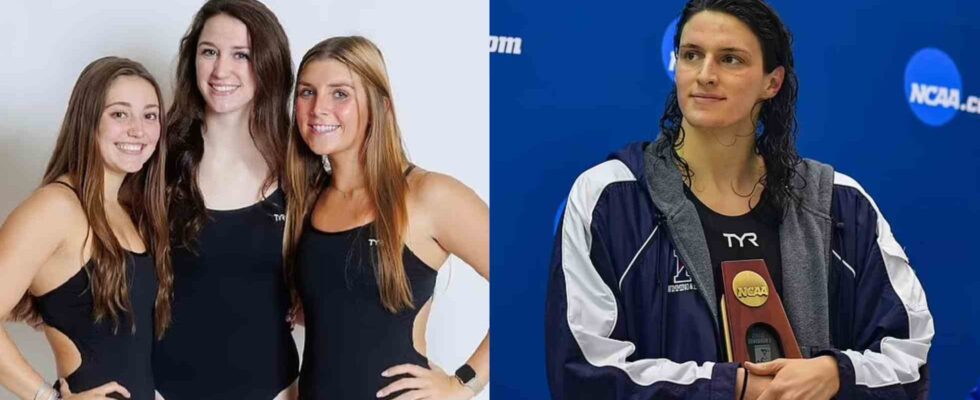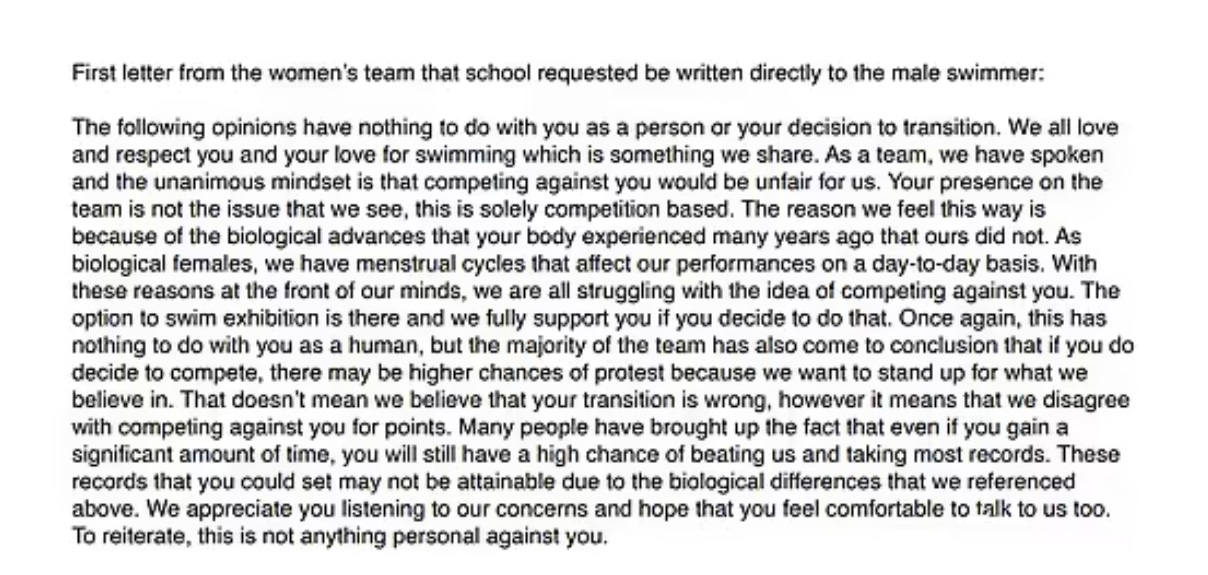A group of elite women swimmers at Roanoke College in Virginia are shedding light on the complexities and challenges they faced when a transgender student joined their team. This story uncovers the emotional turmoil and confusion that ensued, as well as their call for comprehensive guidelines in handling such scenarios.
The story begins with a transgender student’s decision to join the women’s swim team after transitioning, following a year-long hiatus from competition.
This transition sparked a series of questions and concerns within the women’s team, mirroring the controversy surrounding Lia Thomas, the transgender athlete who made headlines for winning an NCAA Division I national championship.
Roanoke College’s three swim team captains, Kate Pearson, Lily Mullens, and Bailey Gallagher, shared their experiences with DailyMail.
‘There’s so many ‘grown ups’ around that should be making these decisions,’ said Kate Pearson, 19.
‘That’s part of their job. It was just a hot mess – I was like, what is happening.’
‘We kept getting put in these situations, and it was so stressful, and every single night we were discussing this through, discussing that.’
‘I was going to bed at 3am just thinking about it, thinking what could happen, what couldn’t happen, constantly stressed, crying just all the time. Every single day. We just could not get a break from it – and we have studies.’
Pearson said they are calling on the NCAA and individual colleges to be proactive in dealing with the situations.
‘There’s no blueprint for this, which is also why we want to stand up and get our voices heard,’ she said.
‘Because there should be – there should be a blueprint for this kind of thing.’
The trio emphasized that their primary goal was not to oppose the transgender student’s choice but rather to ensure fair competition. They felt demoralized as they watched the transgender swimmer achieve remarkable times during practice, raising concerns about the fairness of competition.
The women called for clearer guidelines and policies to navigate similar situations.
Their plea for clarity led them to connect with the Independent Women’s Forum and Independent Council on Women’s Sports (ICONS), both dedicated to protecting women’s sports and advocating for legislation in support of female athletes.
The transgender swimmer’s subsequently made the decision to withdraw from the team, which left the team captains with mixed emotions, as they wanted fair competition rather than exclusion.
‘Other teams are also in that same position of not wanting to have to compete against a biological male,’ said Gallagher.
Their coach, they say told them he had been informed ‘the athletic department told me I can coach a team of one one, and still have a job.’
Pearson said: ‘So the one transgender athlete could stay, and our coach would have been fine. He told us that, and that was a big, kind of stab in the chest for all.’
Ultimately the trio decided to pen a letter.
‘I was giving how the whole women’s team felt, like: we support you, this person. But when it comes to the athletic side of things, we just think it’s biologically unfair. And we were giving true statistics.’
‘And after I was done speaking, the individual immediately jumped to saying: I was suicidal, I wanted to kill myself, I wanted to jump off the building of Trexler, which is one of our science buildings here.’

